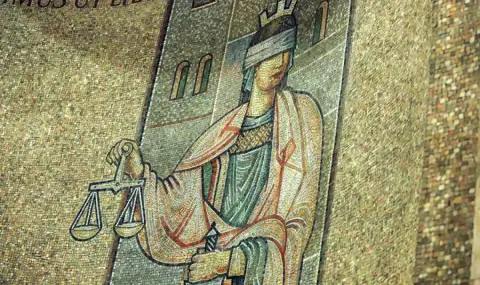It's 2024. A competition saga that started in 2022 is about to end. Immediately after the holidays, the Supreme Judicial Council convenes in session. And at this meeting, under point 6, it is recorded that the SJC will be provided “… motivated proposal, on the basis of Art. 193, para. 2 of the ZSV, for the promotion of ranked candidates for 18 positions “judge” in the Courts of Appeal – commercial department, according to the announced competition with the decision of the Judicial College of the Supreme Judicial Council under protocol No. 31/26.07.2022, (promulgated in SG No. 61/02.08.2022).
Submitted by: The Committee on Attestation and Competitions“.
As is known, in FACTS we have already raised the topic of whether there is a significant procedural violation in the appointment of a competition commission in the Supreme Court. The facts indicate that there is a procedural violation, since Associate Professor Dr. Vencislav Petrov was appointed as a member of the competition committee. Why is there a violation? Because he does not have a scientific specialty in commercial law, but evaluates judges in commercial law? Nonsense.
Do we then have an illegal composition of the competition committee, because the participating associate professor Dr. Ventsislav Petrov does not have a scientific specialty in commercial law and a habilitation in this scientific discipline. According to generally available public information, he is a specialist only in family and inheritance law and can only evaluate candidates for promotion in civil law.
What turns out
Associate Professor Dr. Vencislav Petrov never taught commercial law, never wrote commercial law publications. Assoc. Ph.D. Vencislav Petrov is a habilitated scholar of legal sciences with the academic position of associate professor, but what... Not in the relevant matter - commercial law, because he is an associate professor of civil law.
What path is followed in the competition commission
It is pronounced according to three groups of evaluation criteria. And here it is interesting to find out whether each candidate received 3 marks from each member of the competition committee - a total of 15 marks (first criteria). Are the assessments of all candidates the same according to the first group of criteria, which are the results of the latest attestation and checks by the higher bodies of the judiciary and by the Inspectorate of the Supreme Judicial Council?
Applicants' personnel files are then evaluated. Here, did the competition commission apply this criteria and in what way is it interesting to find out? Are the personnel files of all candidates in the administrative file, what do they include and when were they updated, and are the personnel files of each candidate checked by each member of the competition committee?
The third criterion is extremely interesting. It evaluates the reviewed and closed cases and files selected by the competition committee and presented by the candidates. The candidates have submitted three final judgments on cases that they have considered in the last three years since the announcement of the competition. On what principle did the competition commission determine the cases? Are the cases themselves requested and considered, or only the final judgments rendered? Were the cases physically requested, if at all, or were they scanned and submitted to the competition committee on electronic media? In general, it is said that the practice is that only final judicial acts are required and possibly read.
Candidates must be heard by the members of the competition committee. But is this done… Because there is no answer from each member of the tender committee to say when, in what way and how long it took him to familiarize himself with the tender documentation?
And let's go back to the habilitated teacher Assoc. Dr. Ventsislav Petrov from the Faculty of Law of Sofia University, because questions arise for him. Like, for example, is it true that he does not have an academic specialty in commercial law, was he isolated from the other members of the competition committee, how is it that his grades are exactly the same as the grades of some of the other members of the competition committee, whether he was presented with a ready and completed protocol with grades, and he only signed it?
Here are the requests that various judges are considering, because their goal is to ensure that a lawful appointment procedure is carried out for the ranked candidates...
How is a competition committee made in the Supreme Court?
Or we have 'connection assembly and contacts
Sep 22, 2024 09:05 349
